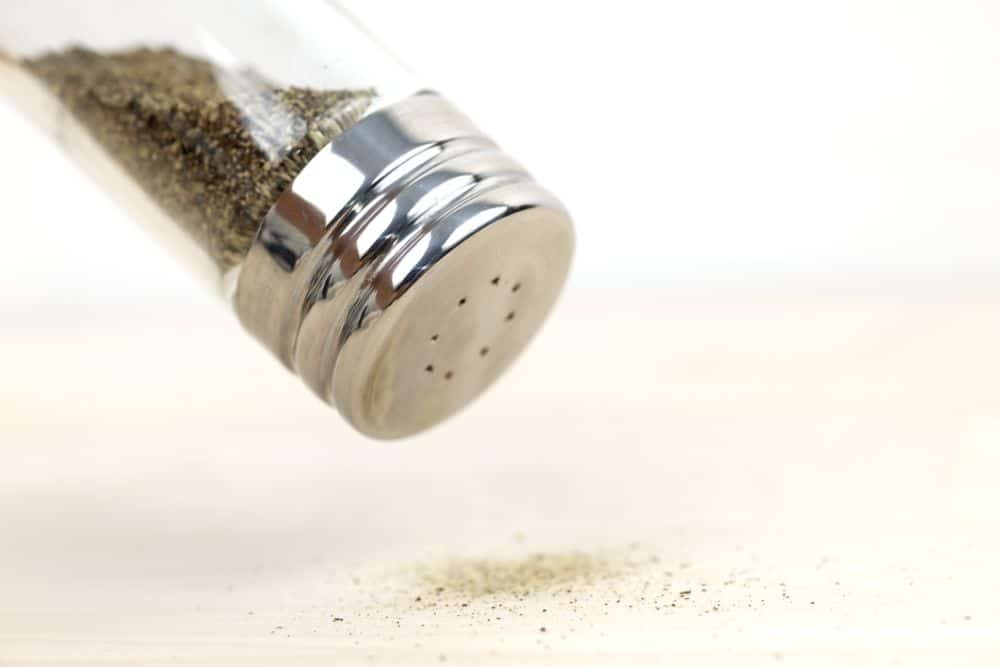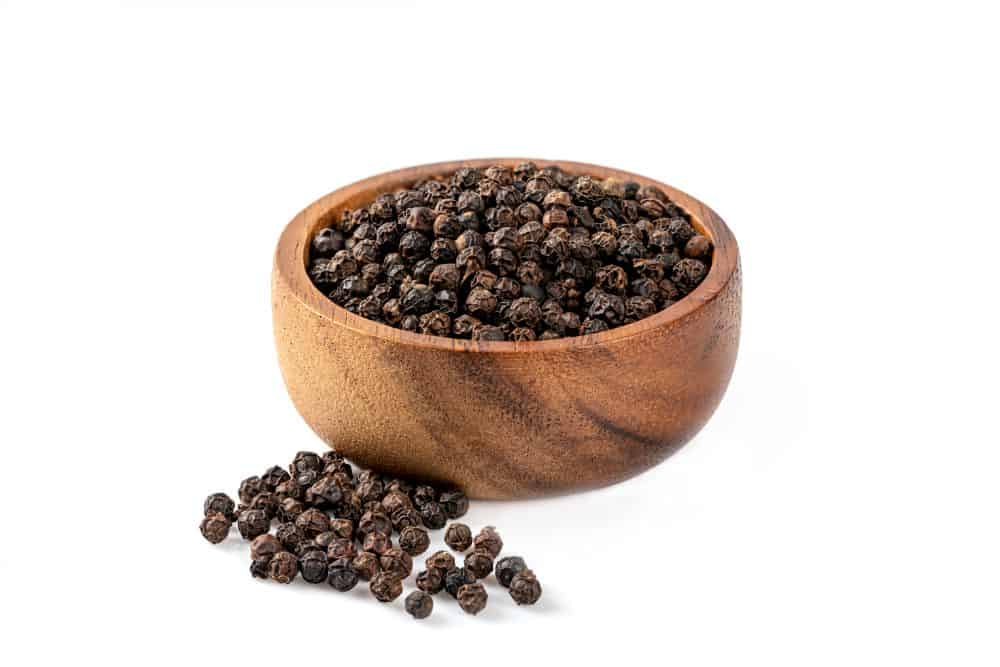Ground pepper and peppercorns never go bad and cannot make you sick because they’re old. Instead, old pepper loses its flavor over time.
Black pepper or Piper nigrum is a kitchen staple found in most homes. It’s part of the famous duo of salt and pepper, which sits on practically every dining table in America and most other countries.
Maybe you recently glanced at the pepper shaker that you haven't filled in a year and wondered: do peppercorns go bad? What about ground pepper? The answer may surprise you, and you can read about that and more in this article designated to pepper!
How McCormick Sources and Makes Red Pepper
You’ll notice on ground pepper containers and peppercorn containers that there are expiration dates. But the expiration date does not indicate that the pepper is no longer safe to eat. But the expiration date refers to the shelf life of the pepper.
Once the shelf life ends, and the pepper reaches its expiration date, it begins to lose flavor and potency.
So if you have a container of ground pepper that’s been sitting in your kitchen for ten years, you can safely eat it, but it may not have much flavor left. Whole peppercorns hold their flavor longer than pre-ground pepper.
Never! Well, if something makes its way into your container of pepper or peppercorns, like bugs, mold, moisture, or other unpleasant substance, you should throw away your pepper.
But if stored properly, it never needs to be tossed out.
The best to store ground black pepper and black peppercorns are in an airtight container. Keep the container in a cool, dry place away from sun or moisture.
Some may store their black pepper or peppercorns in the fridge, but this is only necessary if you live in a hot and humid climate and have no way to maintain a cool temperature.
Unsurprisingly, ground pepper is just ground-up peppercorns. But the two versions of pepper are used for different purposes sometimes, and many people feel strongly about which they prefer.

Peppercorns can be used in pickling, marinades, stocks, blends, pot roasts, and soups while still whole. They typically soften or bring a bold flavor to these dishes. While ground pepper can do the same, the flavor is not as potent as whole peppercorns.
Usually, people have whole peppercorns to place in a pepper grinder to have freshly ground or cracked pepper on their food. But pre-ground pepper serves the same purpose, with a less bold flavor.
The shelf life of ground black pepper is about four months if stored properly. The shelf life of black peppercorns is one to three years.
But as explained, when the shelf life ends, the ground pepper and peppercorns simply start to lose flavor; they do not become rancid or unsafe to eat.
A few different kinds of pepper get used in cooking and seasoning food. The rules for storing and using pepper are the same, but this section takes a closer look at the differences between the varieties.

You can buy ground white pepper or whole white peppercorns, which come from the same plant as black pepper, Piper nigrum. White pepper has a more subtle and less complex flavor often used for mild dishes. White pepper doesn’t have the ‘heat’ or pungent taste of black pepper.
The difference is that white peppercorns are picked at full ripeness, while black peppercorns get picked earlier. And then white peppercorns are fermented. White pepper is popular in light-colored French dishes for a more cohesive visual appearance.
Green peppercorns are harvested at the same time as black peppercorns. But while black peppercorns dry under natural conditions, green peppercorn is freeze-dried, allowing them to preserve their green color.
Sometimes green peppercorns are picked earlier than black peppercorns, but not by much. Like white pepper, they have a mild flavor and offer a subtle taste to dishes rather than the burst of flavor black pepper brings.
Green peppercorns are more common in Asian dishes and typically season mild ingredients, mostly green vegetables. Vegetable stir fry with delicate flavors like artichoke and zucchini will use green peppercorn.
Pink peppercorns are a bright pink color and have a similar kick to black pepper. But the flavor of pink peppercorns is a little fruitier and slightly less sharp, making them a great addition to many dishes where black pepper is too strong.
Because of the beautiful color, pink peppercorn is often a decorative element or way to bring color to an otherwise visually boring dish. Pink peppercorn sauces are often a topping for fancy steaks or decadent fish dishes.
In general, they’re used less for their fruit flavor and more for their colorful appearance, but many still appreciate the unique and fruity flavor.
Interestingly, pink peppercorns aren’t peppercorns and do not come from the Piper nigrum plant. They’re small berries from a few different plants, like Baies rose plant, the Peruvian pepper tree, and the Schinus terebinthifolius.
Also not a real peppercorn, Sichuan peppers are the husks of seeds from a Chinese prickly ash shrub. So they’re not in the Piper nigrum family.
Sichuan peppercorns are a traditional spice in Sichuan cuisine, and they have a tingly, numbing effect on the palette. They have a subtle spiciness, but not the same heat that black peppercorns are known for.
Tellicherry peppercorns are the same as black peppercorns, except they’re bigger! They come from the same plant and go through the same drying process, but are just the bigger seeds taken from the harvest. They also have the same taste, except their flavor is more pungent and sharp.
In a way, it’s remarkable how long pepper can last. Whether you’ve had green peppercorns in your pantry for five years or pink peppercorns for twenty, none of them will cause you harm. Consider pepper to be your immortal spice!
If you’re curious about the shelf life of other spices and common kitchen ingredients, read the answers to the commonly asked questions below.
Plain salt never expires and will hold its flavor for practically ever. But iodized salt has a shelf life of about five years. But like pepper, it won’t go rancid or make you sick; it will just lose its flavor. But store it away from moisture in an airtight container.
Like salt and pepper, ground spices don’t go bad in the traditional sense. They simply lose their flavor and potency, meaning you have to use more to achieve the taste you expect from freshly ground spices.
Most ground spices have a shelf life of about two years, but they can be anywhere between six months and three years, depending on the spice.
Dried herbs also do not go bad or rancid like other foods. But dried herbs will lose flavor and color faster than ground or dried spices. Herbs typically have a shelf life of about one year, but many starts to lose flavor after six months.
Yes, flour can go rancid and make you sick if you eat or cook with expired flour. The odds of flour making you sick is low, but if you see any mold or your flour smells funny, don’t risk it.
A bag of flour typically lasts eight to ten months after being opened. But airtight containers and proper storage can extend their shelf life.
Yes. Don’t use your pepper spray past the expiration date on the container. While pepper spray is comprised of ingredients found in peppers, the degradation of peppers isn’t the main contributor towards expiration. Instead, it is the aging of the propellant in the canister that is the problem. The propellant deteriorates over time which reduces the effectiveness of the spray. Be sure to replace pepper spray containers once you’ve reached their expiration date.
